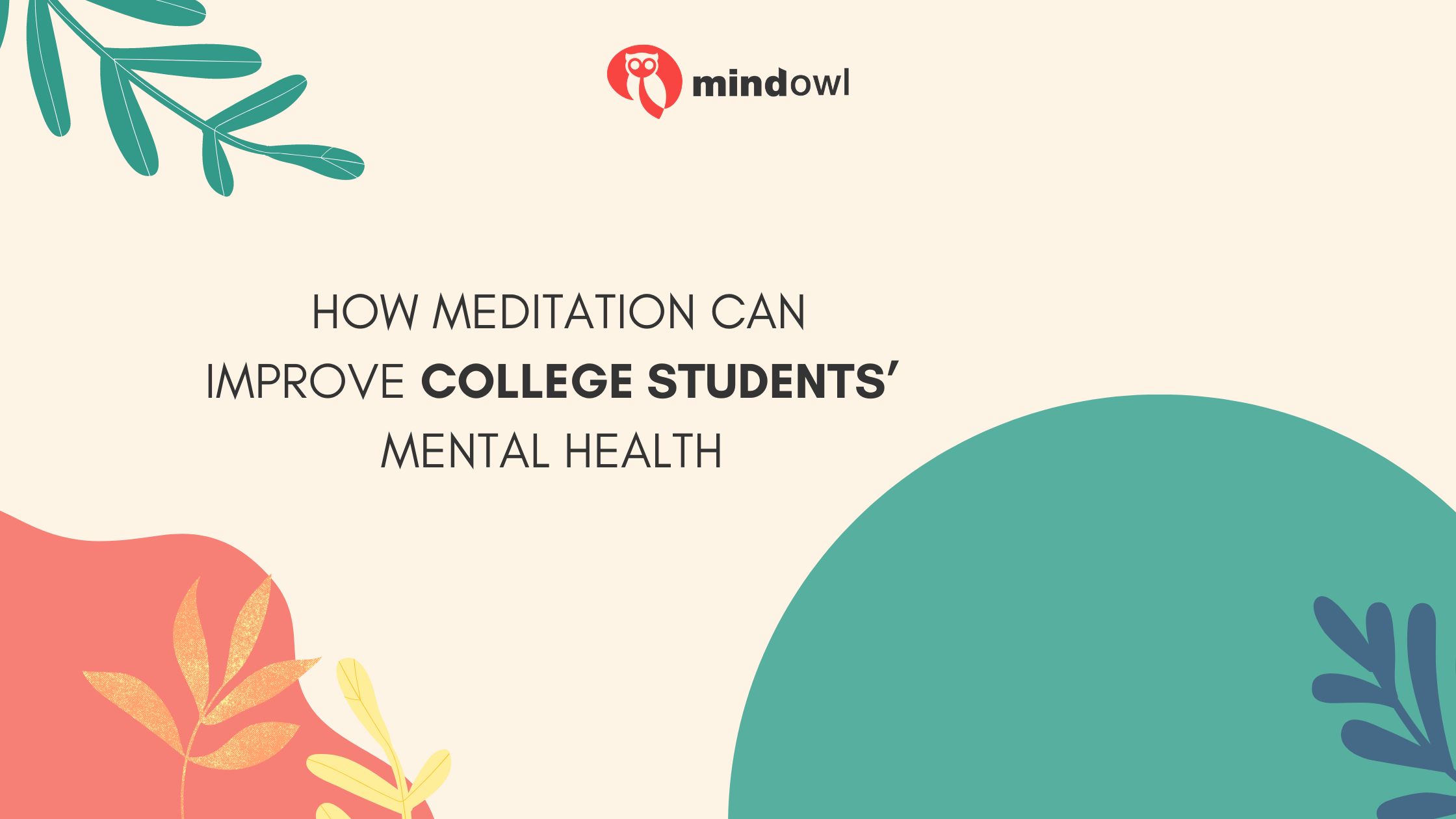
Mental health is an epidemic among college students. While emotional wellness has been a problem for a long time, metrics show things are only worsening. According to the American Psychological Association, more than 60% of college students meet the criteria for at least one mental health issue.
With this in mind, it’s becoming more critical to provide resources that allow students to tackle these issues and receive the support necessary. Among the various resources out there, meditation stands out as a helpful and sustainable method to help students that are dealing with hectic college schedules and requirements. It’s important to provide guided sessions as well as means to let them meditate on their own time. Moreover, considering essay writer help can also alleviate some of the academic burdens, allowing students to focus more on their well-being and personal growth.
Whether you are a student going through turmoil or you aim to introduce students to mindfulness, a basic guide to meditation and its benefits can help kickstart things.
Recognizing Your Stressors
An essential first step to mindful meditation is recognizing what factors are causing you stress or anxiety. This is because meditation is not about ignoring your problems but becoming more present. In doing so, you allow yourself to accept challenges, reflect on yourself, and face any hurdles because you can cultivate a sense of peace and resilience.
In Zocdoc’s mental health guide for college students, experts state that students should start considering help when they feel changes in their mood, behavior, and physical wellness. The common stressors affecting college students listed here include academic pressure, financial stress, social pressure, lack of sleep, feelings of marginalization, gender dysphoria, relationship conflicts, and having too much on their plate, among others.
There is generally a barrage of factors that can attack a college student’s mindset, making it important to take a beat and take active steps to quell them. This not only applies to those well into their college years, but those just entering. The CDC’s surveillance data reveals that 42% of young students not yet in college feel persistently sad or hopeless.
The Effects of Meditation on Mental Health
Mindfulness meditation is all about putting yourself in a non-judgemental state and accepting things for what they are. During this process, you become more attuned to the present and let go of other distractions. It’s a good way to become less overwhelmed by both the past and the future.
As mentioned in Filipe Bastos’ article on the power of mindfulness meditation for improved mental health, this practice effectively reduces stress and anxiety, improves focus and concentration, and boosts one’s mood. It’s a very practical method of cultivating awareness and helping the mind get used to regulating emotions.
In fact, meditation has been proven to reduce stress by around 14% when done consistently for ten days.
How to Practice Meditation
Although the whole point of meditation is helping you release pressure from yourself, it is important to try and do it correctly. Research from the University of Waterloo shows that most people incorrectly use mindfulness practices to simply accept their issues in a way that doesn’t tackle them.
This is why ‘Exploring the Role of Meditation in Reducing Stress and Anxiety’ also means learning the right mindset and techniques to employ to effectively aid your mental well-being.
There are a few tips that should help you start practicing meditation regularly:
- The first thing to consider is to start small. You don’t need to have long sessions right away, especially since this may end up making you feel more frustrated. You can start meditating with sessions that only last around five to ten minutes to get yourself used to the practice.
- The next step is to find a peaceful, quiet area where you can be free of distractions. This will help you focus during your meditation.
- When you start meditating, you will want to focus on your breath. Your mind may start to wander every now and then, which is natural, but you want to ensure your main focus is always tied back to the pattern of your breathing. Only consider your exhaling and inhaling.
- If you are unsure how to stay focused during your session, you can try to use a guided meditation session to help you go along the process.
From there, you just have to make a habit of giving yourself enough time every day to meditate. It’s also good to practice mindfulness in your daily activities, carrying an awareness of your surroundings and remaining present even beyond your meditation sessions.
MindOwl Founder – My own struggles in life have led me to this path of understanding the human condition. I graduated with a bachelor’s degree in philosophy before completing a master’s degree in psychology at Regent’s University London. I then completed a postgraduate diploma in philosophical counselling before being trained in ACT (Acceptance and commitment therapy).
I’ve spent the last eight years studying the encounter of meditative practices with modern psychology.

